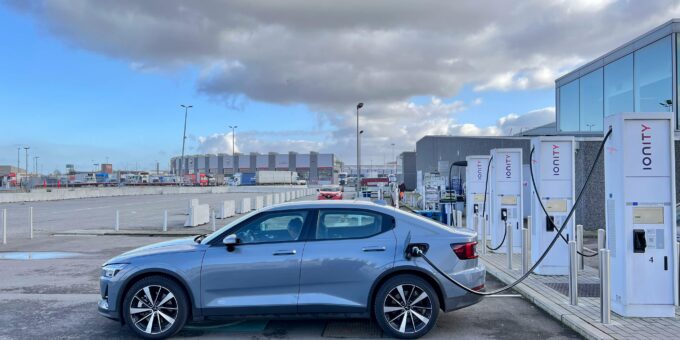
The battery is the heart of your electric vehicle (EV). Proper care and smart habits can significantly extend its lifespan, preserve its range, and save you money in the long run. With EV battery replacement costs being one of the most expensive aspects of ownership, maximizing battery life is essential to protecting your investment.
This guide provides actionable tips to help you keep your EV’s battery in top condition, ensuring optimal performance and longevity.
How Do EV Batteries Work?
Most electric vehicles use lithium-ion batteries, which are lightweight, energy-dense, and highly efficient. These batteries store electricity to power the vehicle’s motor and accessories.
However, like any rechargeable battery, EV batteries degrade over time due to factors like charging cycles, temperature exposure, and usage habits. On average, EV batteries are designed to last 8–15 years, depending on the vehicle model and how well they’re maintained.
Factors That Affect Battery Life
Several factors influence how long your EV battery will last:
- Charging Habits: Frequent overcharging or deep discharging can stress the battery.
- Temperature: Exposure to extreme heat or cold accelerates degradation.
- Driving Style: Aggressive acceleration and braking can reduce efficiency.
- Fast Charging: Excessive use of DC fast chargers generates more heat, which impacts battery health.
Tip 1: Avoid Overcharging
While it might be tempting to charge your battery to 100% for maximum range, doing so regularly can strain the battery over time. Lithium-ion batteries experience less wear when they operate within a partial charge range.
Pro Tip: Charge to 100% only when necessary, such as before a long road trip.
Tip 2: Keep Battery Charge Between 20% and 80%
Most EV manufacturers recommend keeping the state of charge (SOC) between 20% and 80% for daily driving. This range minimizes stress on the battery cells and prolongs their lifespan.
Tip: Many EVs allow you to set charging limits within this range using their onboard software or mobile apps.
Tip 3: Limit Fast Charging
DC fast chargers are incredibly convenient for road trips but should not be your primary charging method. Fast charging generates more heat, which accelerates battery wear.
Advice: Use Level 2 chargers at home or work for regular charging, and reserve fast charging for emergencies or long-distance travel.
Tip 4: Precondition Your EV
Most modern EVs allow you to precondition the battery and cabin temperature while the car is still plugged in.
- Benefits of Preconditioning:
- Improves charging efficiency by bringing the battery to an optimal temperature.
- Reduces strain on the battery during extreme weather conditions.
Tip: Use the preconditioning feature in your EV’s app before driving or charging in very hot or cold weather.
Tip 5: Avoid Extreme Temperatures
Lithium-ion batteries are sensitive to temperature extremes. Exposure to:
- Heat: Can degrade battery cells faster.
- Cold: Reduces charging efficiency and temporary range.
How to Protect Your Battery:
- Park in shaded areas or garages during hot weather.
- Use battery warmers or keep the vehicle plugged in during freezing temperatures.
Tip 6: Drive Smoothly
Your driving habits directly affect battery efficiency. Here’s how to drive smarter:
- Accelerate gradually rather than flooring the pedal.
- Use cruise control to maintain steady speeds.
- Avoid harsh braking unless necessary.
Result: Smooth driving reduces energy consumption and strain on the battery.
Tip 7: Minimize Excessive Load and Weight
Carrying heavy loads increases energy demand, which can reduce your EV’s range and put extra strain on the battery.
Tip: Remove unnecessary items from your car, and avoid using roof racks unless absolutely needed.
Tip 8: Use Regenerative Braking Efficiently
Regenerative braking helps recapture energy that would otherwise be lost during braking and feeds it back into the battery.
Advice:
- Use regenerative braking settings in your EV to maximize efficiency.
- Anticipate stops to brake gently and make the most of energy recovery.
Tip 9: Charge at Off-Peak Hours
Charging your EV during off-peak hours benefits both your wallet and your battery:
- Cost Savings: Many utilities offer discounted rates during off-peak hours.
- Reduced Stress on Battery: Slow, steady charging overnight is gentler on the battery.
Tip 10: Regularly Update Your EV Software
Manufacturers often release software updates to improve battery management and optimize charging cycles.
Tip: Check your EV app or settings menu regularly to ensure your software is up to date.
How to Store Your EV Long-Term
If you won’t be driving your EV for an extended period, follow these storage tips:
- Keep the battery charge between 50% and 60%.
- Avoid leaving the car plugged in continuously.
- Park in a cool, dry place.
Myths About EV Battery Maintenance
- Myth: You should always charge your battery to 100%.
- Fact: Regularly charging to 100% can shorten battery life.
- Myth: Fast charging will destroy your battery.
- Fact: Occasional fast charging is fine, but avoid making it a habit.
- Myth: EV batteries need frequent replacements.
- Fact: Most EV batteries last 8–15 years, with some exceeding 200,000 miles.
FAQs About EV Battery Care
How long do EV batteries last?
Most EV batteries last between 8–15 years or 100,000–200,000 miles, depending on usage and care.
Does charging overnight harm the battery?
Not if you set a charging limit (e.g., 80%) and use a Level 2 charger.
Can I drive my EV in extreme cold?
Yes, but precondition the battery and expect reduced range in freezing temperatures.
How much does it cost to replace an EV battery?
Replacement costs range from $5,000 to $15,000, depending on the vehicle and battery size.
Maximizing the battery life of your electric car is all about smart habits, regular maintenance, and understanding how your EV’s battery works. By keeping your battery’s charge in the optimal range, limiting fast charging, and protecting it from extreme temperatures, you can extend its lifespan and preserve its performance for years to come.